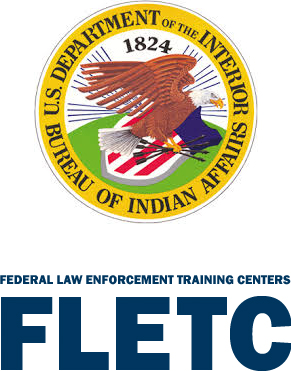Contact Us
To provide feedback on the Community Policing Dispatch, e-mail the editorial board at CPDispatch@usdoj.gov.
To obtain details on COPS Office programs, publications, and resources, contact the COPS Office Response Center at 800-421-6770 or AskCopsRC@usdoj.gov

U.S. Department of Justice
Office of Community Oriented Policing Services
Washington, DC 20530
 Good management skills are important in every organization, enabling those who possess them to be effective as leaders, teachers, and problem solvers.
Good management skills are important in every organization, enabling those who possess them to be effective as leaders, teachers, and problem solvers.
This is equally true in Indian Country law enforcement, whose supervisors must not only oversee the job performance of their subordinates but also do so in a manner that respects and reflects Native American culture and values.
To teach management and leadership skills tailored to the needs of the nation’s 201 Indian Country law enforcement departments, the United States Indian Police Academy of the Bureau of Indian Affairs (BIA) Office of Justice Services (BIA-OJS) opened the Lieutenant Command School (LCS) in 2015.
A Unique Training School for Tribal Law Enforcement
The only training school of its kind, the LCS provides instruction in the policies and practices of the BIA-OJS Law Enforcement Handbook along with Federal Law Enforcement Training Center (FLETC) leadership development courses for supervisory level police officers, criminal investigators, correctional officers, and command staff.
The school, which is located at the academy’s advanced training center at Camp Grafton, North Dakota, offers tuition-free five-day classes that provide scenario-based and instruction-led training from field experienced Indian country law enforcement instructors alongside FLETC leadership instructors who have relevant experience in leadership and management.
Says academy director Steve Juneau, “We developed and now deliver these courses to fulfill a previously unserved need. Though we have long offered specialized law enforcement training, the academy has never before offered a program tailored to the professional needs of BIA and tribal law enforcement supervisors—courses providing instruction in the specific management, leadership, and policy capabilities required to excel at their jobs.”
Since 1969, the academy has trained police, corrections, and dispatch officers as well as special agents and command staff in basic, specialized, and advanced programs, providing academic, legal, and practical instruction in all aspects of tribal law enforcement including federal laws and jurisdiction.
First-line supervisors are trained in the basic practices and policies their reports need to implement when inspecting a vehicle for illegal drugs, keeping the evidence room organized, making an arrest, or performing any of the other duties they are assigned to.
Teaching Management Skills with Actual Job Tasks
“But knowing how things should be done by the people they supervise is only part of a first-line supervisor’s responsibility,” says Juneau. “Coaching, managing, and motivating their officers is another. The LCS curriculum applies leadership skills and best practices to the actual job responsibilities a first line supervisor must carry out. We start with their supervisory authority, scope of responsibility, and the specific policies that support them. Then we focus on developing their leadership skills to motivate, coach, and influence officers to achieve successful practices.”
The program focuses on interpersonal skills such as communication, delegation, planning, strategic thinking, and decision-making. Using actual examples and scenarios from Indian country law enforcement, discussion of these soft skills is merged into instruction.
An example Juneau gives is employee recognition. “We teach participants how to recognize employees and reward performance to create a culture of high performance as well as how to best support employees who are struggling to meet standards,” says Juneau.
Using individual DISC assessments—dominance, influence, steadiness, and conscientiousness—that measure an individual’s personality traits, along with other evaluations, LCS participants learn how to apply their unique strengths to their duties as well as to their roles as supervisors.
Chief of Police Command, Executive Command, and Corrections Command Schools
When the LCS started in 2015, it was focused on the first supervisory level. Now the program has been expanded to include three additional levels of training: (1) a Chief of Police Command School, (2) an Executive Command School, and a Corrections Lieutenant Command School, which provides training tailored to the needs of that job.
Says Juneau, “Each of the command schools builds on the previous leadership and best practices foundations. As each supervisory level expands in scope of responsibility, so does each command school curriculum to teach an additional skill set.”
Among the areas of interest covered on the Chief and Executive levels is how to develop partnerships across law enforcement jurisdictions with state and federal agencies, which can assist or collaborate with Indian country law enforcement. Instructors also discuss how to identify local crime prevention resources and work with tribal partners and community stakeholders such as social services and mental health professionals.
Other topics include Performance Management, Ethical and Moral Behavioral Issues for Law Enforcement leadership, Conflict Management, Managing Organizational Change, Communications, and Decision-Making.
A Separate Program for Indian Country Criminal Investigators
In 2016, the academy also developed the Indian Country Criminal Investigator Training Program to strengthen criminal investigation training for the Federal Bureau of Investigation (FBI), BIA, and tribal special agents assigned to Indian country. This training helps new agents understand jurisdiction, authority, and crime scene investigation. Agents also develop a network of fellow law enforcement contacts who can work together on crimes throughout Indian country.
Asked what inspired him to develop these schools, Juneau says, “I’ve spent my 27-year career working in Indian country law enforcement and have witnessed great performance in Indian country departments with terrific leadership. It’s those experiences and knowing what the necessary job tasks and performance levels are that inspired us to support the future growth of the next generation of leaders. It is a personal and professional honor to serve and support them.”
Faye Elkins
Senior Technical Writer
COPS Office
Subscribe to Email Updates
To sign up for monthly updates or to access your subscriber preferences, please enter your email address in the Subscribe box.






